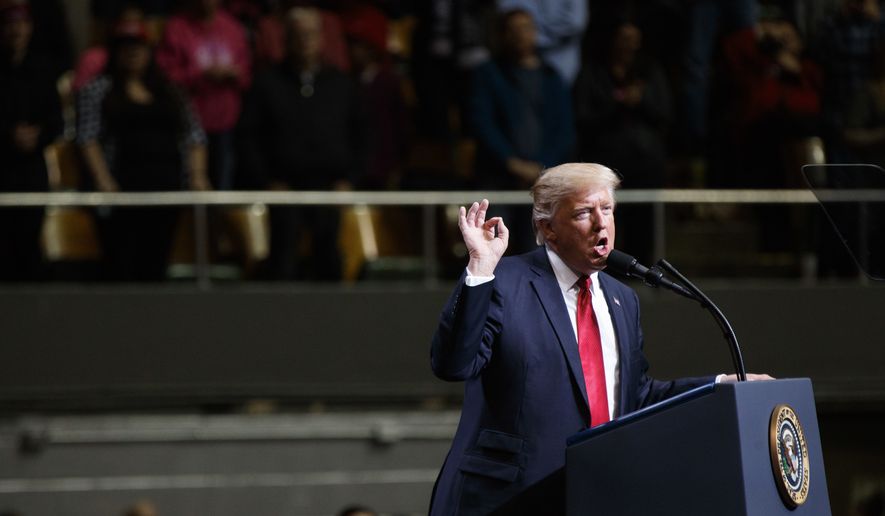OPINION:
A fog has descended on American political life, and it is rather hard for the average citizen to understand what is going on. The mainstream media are daily clamoring for more heads to roll in the administration and for independent investigations to be launched amid allegations of collusion between Donald Trump’s campaign team and the Kremlin, for which the hacking of the Democratic National Convention server is highlighted as one of the presumed “smoking guns.” Clearly, they are laying the groundwork for what may be a bill of “high crimes and misdemeanors” in an impeachment motion.
In this context, Russia policy is just the cutting edge of the more general attack on President Trump. It serves as a shorthand for his plans to reposition the United States as a more conventional, less “exceptional” member of the world’s governing board and to abandon permanent war in favor of Teddy Roosevelt’s recommendation that we speak softly and carry a big stick. None of this sits well with America’s Cold War-minded establishment of whichever party.
Mr. Trump’s adversaries in Congress, like Sen. Chuck Schumer, Rep. Nancy Pelosi on the Democratic side of the aisle, and Sens. Lindsey Graham and John McCain on the Republican side, and even his allies blow hot and cold on Mr. Trump and his foreign policy, depending on how persuaded they are that he is yielding to their pressure and changing course.
Indeed, Mr. Trump and his Cabinet appointees seem to have backtracked on the notion of an accommodation with Russia, or making any structural changes in NATO and in our relationship with allies in Europe and Asia.
In the latest development, it looks like Mr. Trump’s intention to bring Russia to the anti-terror coalition that he kept repeating during the campaign is now being abandoned. Russia has not been invited to join the upcoming meeting of this coalition to be held March 22-23 in Washington, D.C.
That is a huge disappointment for those who believed that a few successful joint U.S. — Russia operations would bring about a “brothers-in-arms” spirit, which could allow us to build on for future rapprochement.
Even from the strictly military point of view, this pathetic coalition of 68 or so members not only showed very few results during this endless war on terror but per Mr. Trump’s earlier statements, it was the U.S. invasion in Iraq and Libya that led to the creation of ISIS in the first place. In contrast, Russia with its newfound allies Turkey and Iran can claim a lot more successes in the war on terror during a much shorter period.
Still, it may be a mistake to draw any conclusions about Mr. Trump’s real intentions or about his ability to prevail over his advisers and implementers.
We are living in parallel realities, where the broad public is being daily exposed to a monolithic media assault on Mr. Trump and his foreign (read: Russian) policy, while the expert community of political scientists has in recent months opened up to very nuanced interpretations of Mr. Trump and even of the widely demonized Vladimir Putin. Perusal of the leading daily digest of articles from professionals dealing with Russia show that what specialists are now daring to say publicly, and what their publishers now put out in the public domain, is vastly more diverse and healthier in terms of intellectual vigor than what we saw 15 months ago, before the U.S. presidential electoral race hit its stride. Moreover, the country’s most prestigious and widely read journal on international affairs, Foreign Affairs, in its latest issue has cast off disparagement of Mr. Trump as just another autocratic populist in the South American tradition, and is trying hard to engage in constructive criticism, even in enthusiastic support for the possibilities that his new approach to foreign policy may bring, as in relations with North Korea.
Where are we headed, then, now that cracks in the establishment are clear, even as a hysterical, McCarthyite campaign against Mr. Trump is underway in the media? He clearly cannot win the battle over direction of U.S. foreign policy, and he possibly cannot even hold onto power if he fails to rein in the saboteurs in government agencies who are behind the leaks that are daily contributing to the feeding frenzy in the media.
All those who voted for Mr. Trump are still waiting for him to deliver the policies that brought him to the White House.
• Edward Lozansky is president of American University in Moscow, where Gilbert Doctorow is a senior fellow.




Please read our comment policy before commenting.